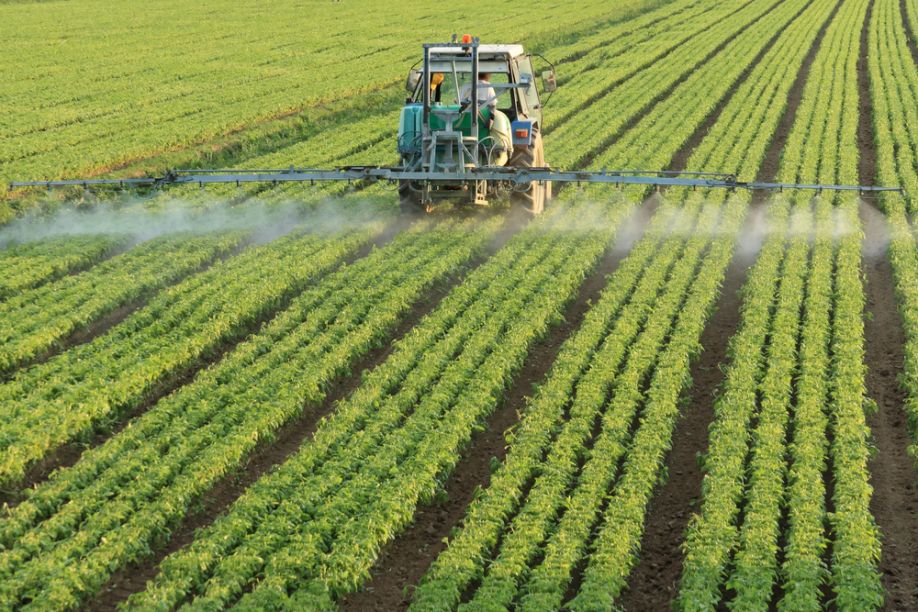Best Water Conservation Technologies for Your Farm This Summer

To have a successful growing season, the agricultural industry needs water. Without water, plants would not grow, and it would leave the country without fresh produce.
Water conservation is a popular topic within agriculture and throughout the world. Over 7.6 billion people populate the earth, and each person needs access to safe drinking water.
Water is a limited resource, so every industry and individual needs to do their part in conserving it. Agriculture uses a substantial amount of the world’s water supply. However, the sector must have a consistent supply of freshwater for food production.
As you plow, plant, and produce, consider using these water conservation technologies for your farm this summer.
Collecting and Storing Rainwater
Agriculture alone accounts for nearly three-fourths of the world’s water supply, making it critical to capture water that would otherwise go unused or wasted.
If you live in a region that receives regular rainfall, you might want to consider collecting and storing the rainwater. Small and large farms alike can conserve water this way. Set up rain barrels or build a pond to keep rainfall to use throughout the year.
You can use the water collected in rain barrels to provide water for your livestock. If you have a purification system, you can use the water for your fresh drinking supply or to wash dishes, bathe, or water house plants. Rainwater stored in ponds for your crops reduces the need to pull from municipal water, which minimizes your impact on the watershed.
Implementing Drip Irrigation
Many farmers use this method of water conservation. Drip irrigation systems deposit water directly onto a plant’s roots. Water dropped on the surface is prone to evaporation, and therefore, water loss. Instead, drip irrigation eliminates evaporation.
Those in agriculture have used drip irrigation for many years. Current technologies have made drip irrigation more efficient, resulting in reduced water usage. Timers allow farmers to schedule irrigation for later in the day when it’s cooler so the water won’t evaporate.
Planting Climate-Appropriate Crops
Drought has affected many crops throughout the United States and the rest of the world. Different crops require varying amounts of water to produce a yield large enough to meet the demands of the population.
Shifting to drought-resistant crops would conserve water on farms. The crops tolerate conditions like little rainfall and intense heat. Additionally, they use less water overall and still provide a significant yield.
Practicing Low-Till or No-Till
Over-tilling land results in a loss of soil, and it depletes the soil’s structure. As a result, the soil is more susceptible to erosion. Additionally, the ground cannot hold in moisture, so farmers may end up using more water to keep their crops hydrated.
Practicing low-till or no-till farming allows the soil to maintain its structure. Therefore, it can retain moisture and requires less watering. This practice increases water absorption and reduces erosion and evaporation.
Managing Soils
As previously mentioned, soil structure can account for how much water you use. One way to conserve water on your farm is by managing and maintaining good soil structure. Compost and mulch act as fertilizing agents for your soil, which increases water retention.
Mulch holds in the moisture after you water a crop. This means you’ll be able to spread out watering times. Additionally, the mulch helps break down compost and fertilizers, which also help the soil hold in water for an extended time.
Using Rotational Grazing
If you have livestock, using rotational grazing practices can help you conserve water. Rotational grazing means you move the animals between various fields instead of keeping them in one location. This allows the pasture to regenerate.
When you manage your livestock grazing patterns, the field can replenish, which in turn increases the pasture’s water absorption. Without rotating, the fields become overworked and depleted of their moisture-locking abilities.
Recycling Runoff Water
Sometimes, runoff is inevitable. Perhaps you just watered your crops, and then not long afterward, you get a downpour. Of course, you can avoid this by checking the weather, but the weather can be unpredictable. Plus, runoff occurs due to overwatering or poor soil conditions.
You can conserve runoff by recycling it. Capture-and-recycle systems include channels that carry the runoff to large basins. Then, the water goes through a filtration system. Farmers can use the filtered water to irrigate crops once again.
Conserving Water on Your Farm
To help the environment and reduce operating costs on your farm, you can use the above technologies and innovations to conserve water on your farm this summer. Water conservation is necessary for a sustainable future in agriculture, so do your part to reduce your use of this precious resource.
Comments (0)
This post does not have any comments. Be the first to leave a comment below.
Featured Product

